Were you surprised by your postpartum body? Are you still surprised at how your body is looking and feeling after giving birth? We don’t often see what a mother’s postpartum body actually looks like so that surprise is only natural
You’re standing in the mirror after having your baby and your postpartum body isn’t what you expected.
You don’t really recognize your body anymore. You see stretch marks, your breasts have changed, your skin looks different and maybe you’re worried about all the weight you think you need to lose. You don’t love what you’re looking like… maybe you even hate it. I’ve been there before. I get it.
It can be so difficult to accept your postpartum body, there’s no doubt about that. Below are some suggestions on how to cope if you’re not loving your appearance these days.
Acknowledge societal expectations placed on our bodies.
As your body changes, you probably notice some self-judgement. But I want you to think for a moment about where that shame comes from. Think about what has formed your opinions on body image and what you’re “supposed” to look like.
If you’re struggling to accept what you see reflected in the mirror, understand that that’s not your fault. Acknowledge that you’ve likely grown up in a culture that values women primarily for aesthetics and has very narrow ideas about female appearance. Those rules even apply to pregnant and postpartum women. Think about how unfair that is! At a time when the focus should really be on health and the major adjustment ahead, society adds this layer of self-consciousness to all that you’re already managing.
No wonder you’re struggling!
Recognize your own criticism.
Were you surprised by your postpartum body? Are you still surprised at how your body is looking and feeling after giving birth? First of all, this sense of surprise is completely natural –you probably hadn’t seen any accurate representation of what to expect. And if you had, it was probably sprinkled with judgement.
Oftentimes our disappointment or confusion in this situation only reflects that our expectations were not accurate to begin with. When our reality doesn’t meet the expectation, we tend to feel embarrassed or ashamed.
Imagine that the critical voice you hear inside you was a distinct part of you (you could even give her a name, or at least think of her as separate). What types of things does your critical self say? How does she make you feel? Does that voice suggest that there’s something wrong with your body as it is right now?
When you can begin to notice that harsh running commentary about your “flaws”, you can start to create some space around it, so that eventually you don’t believe every single thing that part tells you. Another way you can manage this critical part of yourself is to get connected with it’s opposite: your kind and compassionate self.
Access your wiser, compassionate self.
Your compassionate self is the part of you that knows you’re actually okay no matter what you look like. Yes, that part of you exists even if you feel like it might not! Maybe her voice is quieter, or less convincing, or she might even feel completely foreign. But she’s there. Trust me! Perhaps you’ve been underutilizing this side of yourself for too long.
Learning to honour yourself (your true compassionate self, that is) is much easier said than done. I get that.
One of the most effective ways you can begin to move away from your critical self and toward your more compassionate self is to think about what you would say to a friend who is struggling with the same postpartum feelings.
Would you treat her the same way? Likely not.
We tend to be way more compassionate with our close friends than we are with ourselves. Don’t blame yourself for this either. This is how you’ve been taught to relate to yourself as compared to others.
So what would you say to a close friend who hated her postpartum body after giving birth? Maybe you’d remind her about the incredible miracle her body just performed. Maybe you’d talk to her about keeping expectations realistic with her changing body. Or maybe you could work with her to help her realize that this is just temporary.
So given the fact that you know exactly how to talk to a friend who’s struggling with these feelings, how can you then turn that kindness toward yourself?
Reframe the way you think about your body.
I want to help new moms shift the way they value their bodies from outwards appearance, to what they are capable of doing.
Function over aesthetic. What you can DO rather than what someone else sees. See how powerful that shift it?
What is instead of judging your “imperfect” post-baby bod, you focused on the fact that your body just grew a human? What if you could be in awe of your physical self?
There’s a practice called body gratitude where we take a minute to shift away from aesthetic judgement and instead be grateful for all that your body has helped you achieve. That body you’re hating on is the same body that allows you enjoy coffee, a glass of wine, sex, movement and sunshine.
Yeah, there might be stretch marks on that strong body, but so what? Do those things that you dislike about your physical self actually get in the way of you experiencing the joys of life? I doubt it.
You don’t have to love it… just don’t hate it.
I know that for some women, the idea of self-love and body acceptance makes them twitch. They feel like it’s just too much, or that they couldn’t possibly like what they see in the mirror.
I get that. Sometimes loving yourself feels so far away that you might feel completely excluded from this conversation. I get that.
What if I told you that you don’t actually have to love yourself? That doesn’t need to be the goal. But what if you could arrive at a more neutral place instead? Like, “oh, huh. There’s my stretch marks. I see them. Moving on.”
I don’t expect you to look in the mirror and proclaim your excitement about something that you genuinely don’t like right now. But just do put energy into hating that part either.
This concept is called body neutrality, and it’s all about developing a respectful relationship with your body, but not loving or hating it. Instead, you don’t have to have overly positive or negative feelings toward your body at all. It just is. (You can read more about body neutrality here).
Embracing body neutrality is a true godsend during the postpartum phase. This is the idea that you don’t have to force yourself to love something but you don’t have to hate on it either.
Sure, your breasts have changed and maybe you don’t like how they look, for example. That’s fine! An inner dialogue that says “Alright, this is different,” is better than “I hate how my breasts look.” You don’t have to fake your way into loving every single detail, but you could choose to respect those changes, and be gentle with yourself.
I want moms to know that they are worthy of their own love, compassion and acceptance… no matter what your body looks like these days!

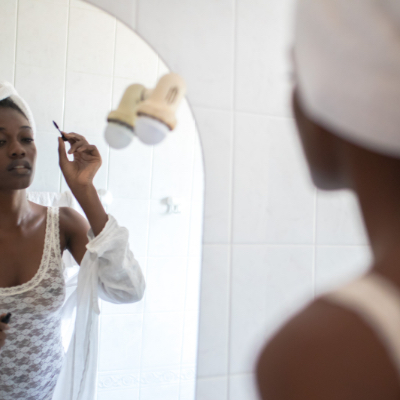
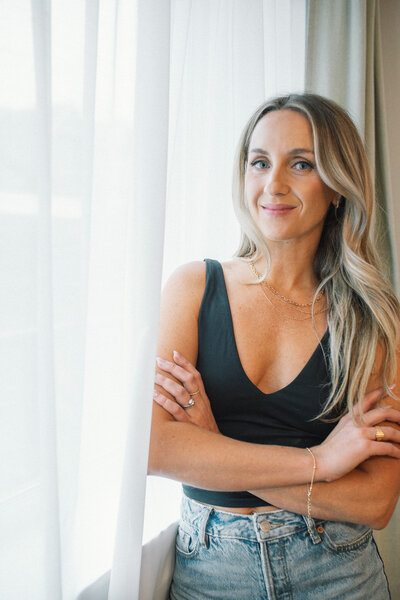
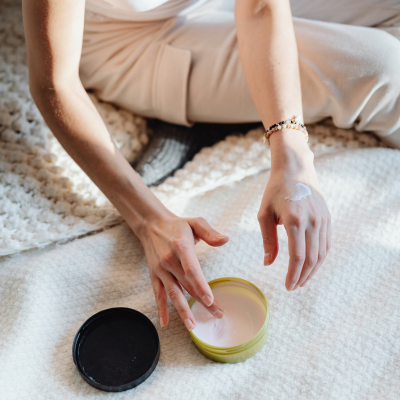
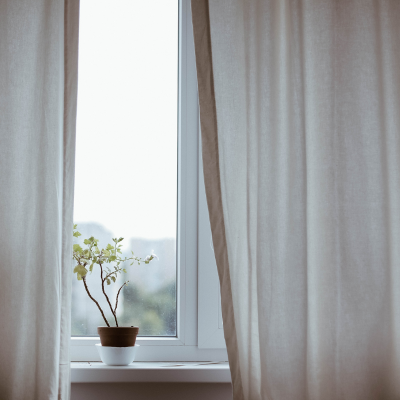
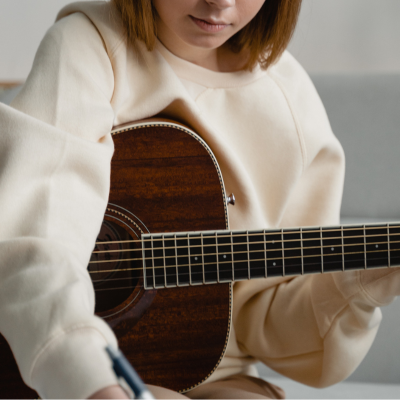
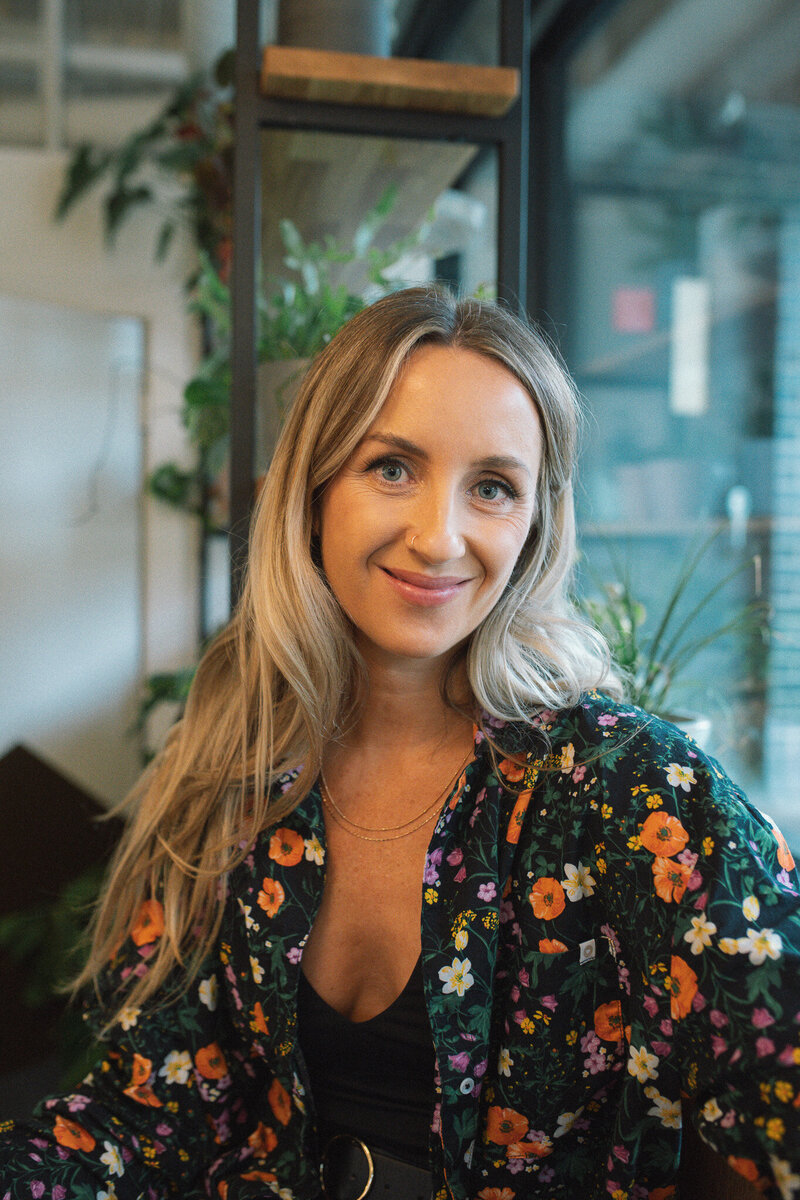
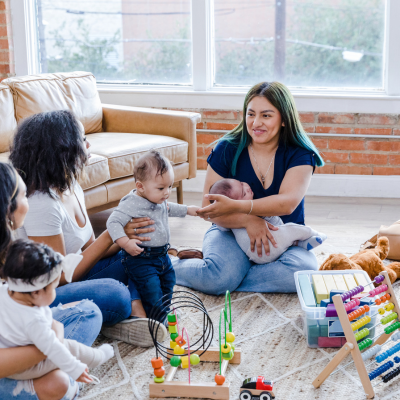








Comments +